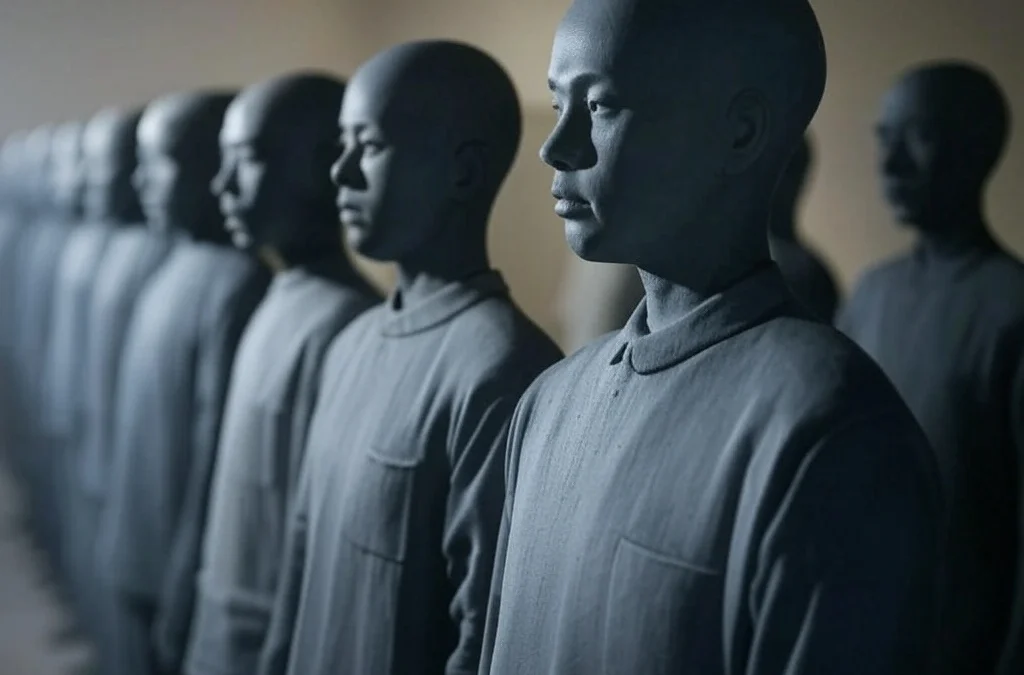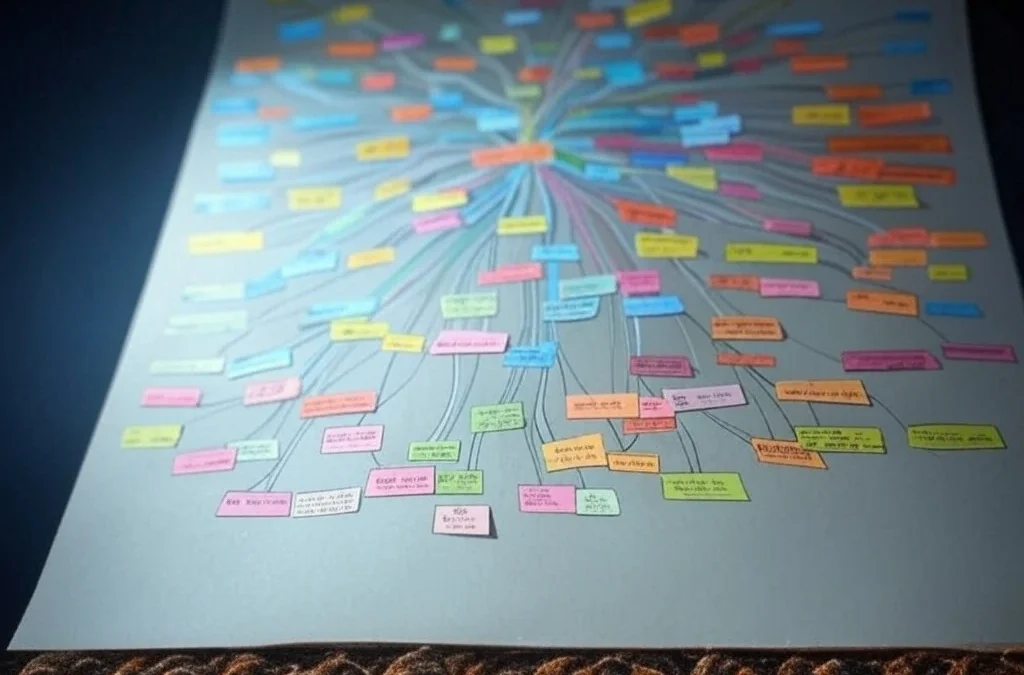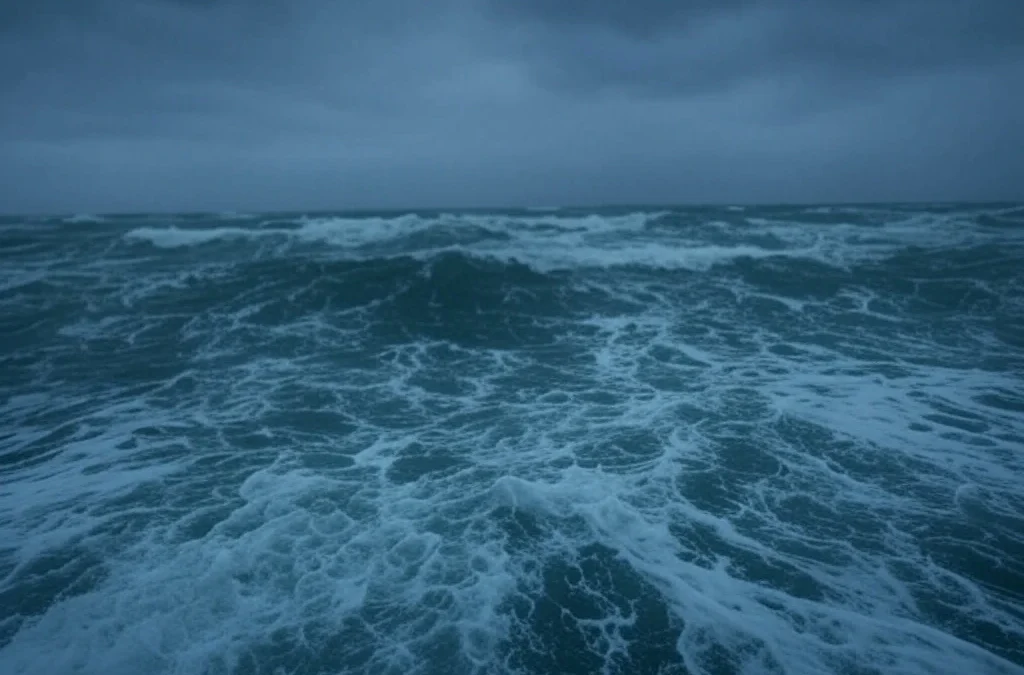Have you ever walked into a room and completely forgotten why you went there in the first place? This little moment of forgetfulness is something we all experience, and it’s just one example of what we might call “oblivion.” Oblivion is a state where things slip from our memory or awareness, and it can happen in many different ways. From misplacing your keys to forgetting an old friend’s name, these moments remind us of how our minds sometimes play tricks on us.
In this article, we’ll explore 20 interesting examples of oblivion that many of us encounter in everyday life. Some of these instances are funny, while others might be a little frustrating. But they all share a common thread: they’re part of being human. By looking at these examples, you might find yourself nodding along, realizing just how universal these experiences are. So, let’s take a look at some of the ways oblivion sneaks into our lives and see if any of them sound familiar to you.
Understanding Oblivion
Oblivion is a term often used to describe a state of complete forgetfulness, unawareness, or the condition of being utterly forgotten. It originates from the Latin word “oblivio,” which means “forgetfulness” or “being forgotten.” In a broad sense, oblivion can refer to the mental state of not remembering or recognizing something, or it can describe a metaphorical place where things are lost to memory and consciousness.
In literature and philosophy, oblivion is frequently depicted as a condition where individuals or events are consigned to obscurity and are no longer acknowledged or remembered. This concept is often explored in discussions about mortality, legacy, and the transient nature of human existence.
Oblivion can also refer to a more specific context, such as the legal concept where a person or entity is granted pardon or amnesty, effectively erasing past transgressions from public memory. Additionally, in cultural references, it can denote a state of blissful ignorance, where one is unaware of the surrounding realities.
In everyday language, saying someone or something has “fallen into oblivion” suggests that they have been forgotten or have faded from public attention. Thus, oblivion encompasses both a psychological state and a metaphorical concept of being lost to time and memory.
The Best Examples of Oblivion
Oblivion touches our lives in countless ways, from forgotten memories to lost artifacts of the past. Below, we delve into 20 fascinating examples that highlight the many forms of oblivion, revealing how easily things can fade from our awareness and into obscurity.
1. The Forgotten Childhood Toy
Imagine an old toy lying under the bed, unseen and untouched for years. Once a prized possession, it now gathers dust, its paint chipped and colors faded. This toy embodies oblivion, as it sits quietly, forgotten by its owner who has moved on to new interests.
2. A Lost City in the Jungle
In the heart of a dense jungle, remnants of an ancient city stand silent. Overgrown with vines and hidden from sight, this city was once a thriving community. Now, it lies in oblivion, a mystery to the modern world, its stories untold and its people long gone.
3. The Faded Photograph
A photograph tucked away in an attic box slowly loses its clarity over time. Faces and places that once held vibrant stories become mere shadows. This fading image captures the essence of oblivion, as memories are slowly erased by time and neglect.
4. The Abandoned Building
In an old part of town, a building stands abandoned. Windows are broken, and weeds grow through cracks in the pavement. This structure once bustled with life but now sits in oblivion, a relic of the past that the world around it has forgotten.
5. The Silent Film
Silent films once captivated audiences with their innovative storytelling. Today, many of these films exist only as faded reels in forgotten archives. They represent oblivion, as the world has moved on to new technologies, leaving these masterpieces in the shadows.
6. The Neglected Garden
A garden, once full of vibrant blooms and lush greens, falls into neglect. Weeds overtake the flowers, and the once-tended paths become overgrown. This garden illustrates oblivion, where beauty and care vanish, replaced by nature’s relentless growth.
7. The Old Diary
An old diary sits on a dusty shelf, its pages yellowed and brittle. Filled with the thoughts and dreams of its writer, it now lies unopened and unread. This diary is a symbol of oblivion, as personal histories fade into obscurity without anyone to remember them.
8. The Deserted Island
Far from bustling cities, a deserted island remains untouched by modern life. Its beaches are empty, and its forests are silent. This island lives in oblivion, a place forgotten by time, where nature reigns undisturbed by human presence.
9. The Outdated Technology
Once cutting-edge, an old computer now gathers dust in a corner. Its technology is obsolete, replaced by newer, faster devices. This piece of outdated technology embodies oblivion, as it becomes irrelevant in a world constantly seeking innovation.
10. The Forgotten Language
Languages once spoken by entire communities can fade into oblivion. When the last speaker of a language passes away, their words and expressions risk being lost forever. This forgotten language represents oblivion, as cultural heritage disappears without preservation.
11. The Empty Theatre
Once a hub of cultural activity, the grand theatre now stands empty, its seats collecting dust. The echoes of applause and laughter have long faded, leaving behind a silence that speaks volumes. This theatre, once alive with performances and audiences, now exists in oblivion, a forgotten monument to an era of artistic expression.
12. The Old Map
A map, aged and frayed, sits in a drawer, its edges curled and ink smudged. It once guided explorers to unknown lands but now serves no purpose in a world of GPS technology. This map is a testament to oblivion, a relic of exploration that has been overshadowed by modern convenience.
13. The Disused Railway
Rusty tracks snake through the countryside, overgrown with weeds and wildflowers. Trains no longer run this route, and the station has been abandoned. This railway, once a lifeline for communities, is now a symbol of oblivion, as nature slowly reclaims its path.
14. The Forgotten Recipe Book
In a kitchen drawer, an old recipe book lies unopened. Its pages are stained with the remnants of meals long past, and its spine is cracked from use. This book, once a source of culinary delight, now sits in oblivion, overshadowed by the convenience of online recipes.
15. The Unread Novel
A novel, its cover faded and spine creased, rests on a shelf. Its story, once engaging and vibrant, is now overlooked in favor of new bestsellers. This unread book captures the essence of oblivion as it waits patiently for someone to rediscover its tale.
16. The Overgrown Cemetery
In a forgotten corner of town, a cemetery lies overgrown. Headstones are obscured by ivy, and paths are lost beneath the underbrush. This resting place, once visited by loved ones, has slipped into oblivion, its stories left untold as time marches on.
17. The Unfinished Painting
An easel stands in the corner of a studio, holding a canvas with an incomplete painting. The artist’s vision, once clear and purposeful, now fades with each passing day. This unfinished work represents oblivion, a creative endeavor left behind as life moves forward.
18. The Disconnected Phone Booth
An old phone booth stands on a busy street corner, its glass panels cracked and graffiti-covered. Once a vital communication hub, it now serves as a relic of the past. This booth embodies oblivion, as it is bypassed by those carrying smartphones, disconnected from its original purpose.
19. The Vanished River
A dry riverbed winds through the landscape, where water once flowed freely. The river, once a source of life and sustenance, has disappeared, leaving only a barren scar. This vanished river speaks to oblivion, as its existence is erased from memory and map.
20. The Neglected Sculpture
In a public park, a sculpture stands unnoticed. Weathered by the elements, its details are obscured, and its plaque is unreadable. This artwork, once celebrated, now stands in oblivion, overlooked by passersby who hurry through their daily routines.
Famous Historical Events and Figures Lost to Oblivion
History is full of stories that were nearly forgotten – or have only recently been rediscovered. One striking example is the city of Pompeii. For centuries, it lay buried under volcanic ash. Its rediscovery in the 18th century revealed a vivid snapshot of Roman life that had been frozen in time.
Another example is Hypatia of Alexandria, a brilliant philosopher and mathematician from ancient Egypt. Her contributions to science were largely erased for centuries, overshadowed by political and religious turmoil. Only in recent years has her story regained attention.
The Library of Alexandria itself is a symbol of forgotten knowledge. Once a hub of learning, it was destroyed, and much of the ancient world’s wisdom was lost forever. Similarly, civilizations like the Indus Valley and the Olmecs left behind ruins and artifacts, but much about their lives and cultures remains unknown.
Even in the modern era, some innovators have faded from memory. For instance, Ada Lovelace, who laid the groundwork for computer programming, was overlooked for decades despite her groundbreaking work.
These stories remind us how easily time can erase even the most remarkable achievements. But they also show the power of rediscovery and the importance of preserving history for future generations.
The Science Behind Forgetting: Why Does Oblivion Happen?
Forgetting is a natural part of how our brains work. Scientists believe it’s not a flaw but a way to manage the overwhelming amount of information we encounter daily. The brain filters out what it deems less important to make space for what truly matters.
One explanation for forgetting is memory decay. Over time, the connections between neurons weaken if a memory isn’t revisited. It’s like an unused trail in a forest gradually becoming overgrown. Another cause is interference theory, which happens when new memories overwrite or mix with old ones. For example, learning a new phone number might make it harder to recall the old one.
The hippocampus, a small part of the brain, plays a big role in memory. It helps store and retrieve information. But if the hippocampus is damaged or overwhelmed, we might struggle to recall details. Stress, lack of sleep, and even multitasking can also disrupt this process, leading to moments of forgetfulness.
Interestingly, not all forgetting is bad. It helps us move on from painful experiences and focus on what’s relevant now. But when it becomes excessive, it can feel frustrating. Understanding why we forget can help us take steps to remember what matters most.
Oblivion Through the Lens of Different Cultures
How different cultures view forgetfulness and memory can reveal a lot about their values. In Japan, the concept of “mono no aware“ reflects an acceptance of life’s fleeting nature. It’s the idea that beauty lies in impermanence – like cherry blossoms that bloom briefly before falling. Forgetting is not feared but seen as part of the cycle of life.
In contrast, some Indigenous cultures place a strong emphasis on memory preservation. Stories and traditions are passed down orally to ensure they aren’t lost. Forgetting these stories could mean losing a connection to ancestors and identity.
Ancient Egyptians believed that to be forgotten was worse than death. They built grand monuments and inscriptions to keep their names alive. On the other hand, certain Buddhist traditions view oblivion differently. Forgetting the self can lead to enlightenment, freeing people from attachment and suffering.
Each culture has its own way of grappling with oblivion. Some accept it, others resist it, and many find creative ways to keep memories alive. These perspectives remind us that forgetfulness isn’t just personal—it’s deeply tied to who we are as a society.
Embracing Mindful Awareness
In a world where distractions are endless, cultivating mindful awareness can be a powerful antidote to forgetfulness. Mindfulness is all about living in the present moment and paying attention to your thoughts, feelings, and surroundings without judgment. It helps you break free from the autopilot mode that often leads to moments of oblivion.
Practicing mindfulness doesn’t require any fancy equipment or extensive training. It can be as simple as taking a few minutes each day to sit quietly and focus on your breath. Notice the sensation of the air entering and leaving your body. When your mind wanders, gently bring your attention back to your breathing. This practice strengthens your ability to concentrate and improves your memory over time.
Another effective way to enhance mindfulness is through mindful walking. As you walk, pay attention to the movement of your legs, the feeling of your feet touching the ground, and the sounds around you. This exercise encourages you to be present in the moment, reducing the likelihood of getting lost in thought or forgetting important details.
Mindfulness can also be integrated into daily activities. When eating, savor each bite and notice the flavors and textures. When listening to someone speak, focus entirely on their words and expressions. These practices not only help you remember more but also enrich your experiences and relationships.
By incorporating mindful awareness into your life, you create a buffer against the chaos that often leads to forgetfulness. It allows you to stay grounded, connected, and fully aware, reducing the instances where you might find yourself lost in oblivion.
Exploring the Concept of Oblivion in Literature and Philosophy
The concept of oblivion has been a rich subject of exploration in literature and philosophy, often symbolizing the ultimate state of forgetfulness or non-existence. In literary contexts, oblivion can be seen as a metaphor for death or the loss of memory, where characters grapple with the fear of being forgotten or losing their identities. Philosophers, on the other hand, have delved into oblivion as an existential concept, questioning the nature of existence and what it means to truly cease to be. The fear of oblivion can drive human actions, pushing individuals to seek meaning and legacy. This exploration of oblivion often raises profound questions about the nature of consciousness and the human desire for immortality. Writers like Shakespeare and Nietzsche have frequently touched upon these themes, illustrating how oblivion is intertwined with the human condition. By understanding these interpretations, readers can gain insight into how oblivion shapes narratives and philosophical discourses, offering a window into the deeper fears and hopes of humanity.
The Psychological Impact of Oblivion
The concept of oblivion often evokes deep emotional responses. For some, it’s a source of fear. The idea of being forgotten or losing memories can be unsettling. It raises questions about identity and legacy. What happens when memories fade? This fear can drive people to document their lives through journals or social media. They want to leave a mark. Others may find comfort in oblivion. They see it as a release from pain or mistakes. Forgetting can be a form of healing. It allows for a fresh start without the burden of the past. Oblivion, in this sense, is like a reset button.
For many, the thought of oblivion connects to existential musings. It prompts reflection on life’s transient nature. Why do we strive for achievements if they might be forgotten? Yet, these reflections can inspire meaningful living. They push us to cherish moments and relationships. We become more present. More thoughtful. Oblivion, paradoxically, can highlight the value of now. It’s a complex mix of fear and freedom. A balance between remembering and letting go.
Oblivion in Popular Culture
Oblivion is a recurring theme in movies, books, and music. It captures the imagination of creators and audiences alike. Films like “Eternal Sunshine of the Spotless Mind” explore memory erasure. They ask what it means to truly forget someone. In literature, oblivion often appears in dystopian settings. Characters battle against a society that erases history. This theme resonates with fears of losing cultural identity. Music, too, touches on oblivion. Songs about fading love or lost youth evoke nostalgia. They remind listeners of the inevitability of change.
This theme also appears in video games. For example, “The Elder Scrolls IV: Oblivion” offers an immersive fantasy world. Players face challenges that test their memory and decision-making. Oblivion, in these contexts, is both a plot device and a metaphor. It symbolizes the unknown and the forgotten. It speaks to the human experience in a universal language. People are drawn to stories about oblivion because they reflect real-life struggles. They offer a safe space to explore fears and hopes. A place where the forgotten can be remembered.
Read also: 20 Sentimentality Examples & Definition
The Most Popular on BitGlint

30 Mediocrity Examples & What It Really Means
Mediocrity often carries a negative connotation in our achievement-oriented society. Yet, this concept plays an...

20 Infinity Examples & Definition
Infinity is one of the most powerful ideas people have ever thought about. It shows up in math, science, philosophy,...

30 Divergent Thinking Examples & Definition
Divergent thinking is a powerful mental process that allows us to generate multiple solutions to a single problem....

30 Disappointment Examples & Definition
Disappointment is an emotional response we all experience when our hopes, expectations, or desires aren't met. It's...

50 Moral Principles and Examples of Each
Moral principles serve as the foundation of ethical decision-making, guiding our actions and interactions in everyday...

30 Naivety Examples & Definition
Naivety is something most people experience at some point in their lives. It often starts in childhood, but for some,...

50 Journaling Examples to Inspire Your Writing
Journaling has been a powerful practice for centuries, used by everyone from famous writers and historical figures to...
Get Inspired with BitGlint
The Latest
30 Examples of Pragmatism & What It Really Means
What does it really mean to be pragmatic? It’s a word people often hear, but not everyone fully understands. In everyday life, pragmatism shows up in the choices we make, the way we solve problems, and how we respond to challenges. In this article, we’ve prepared...

100 Things That Aren’t Real (But We Wish They Were)
Some things only live in stories, dreams, and imagination. From mythical creatures to impossible inventions, there’s a long list of things that aren't real but still feel important to people everywhere. Humans have always loved creating fictional ideas. Sometimes it’s...
50 Ambition Examples in Life and Work
Ambition is the drive to achieve something greater. It pushes people to improve, set goals, and keep moving forward—even when things aren’t easy. But ambition doesn’t always look the same for everyone. For some, it’s about building a career. For others, it’s about...
40 Paradox Examples That Defy Intuition
Have you ever found yourself in a situation where the more you try to save time, the more time you actually waste? That’s the paradox of efficiency at play. Paradoxes are all around us, and they often pop up in everyday life, leaving us scratching our heads. They are...

